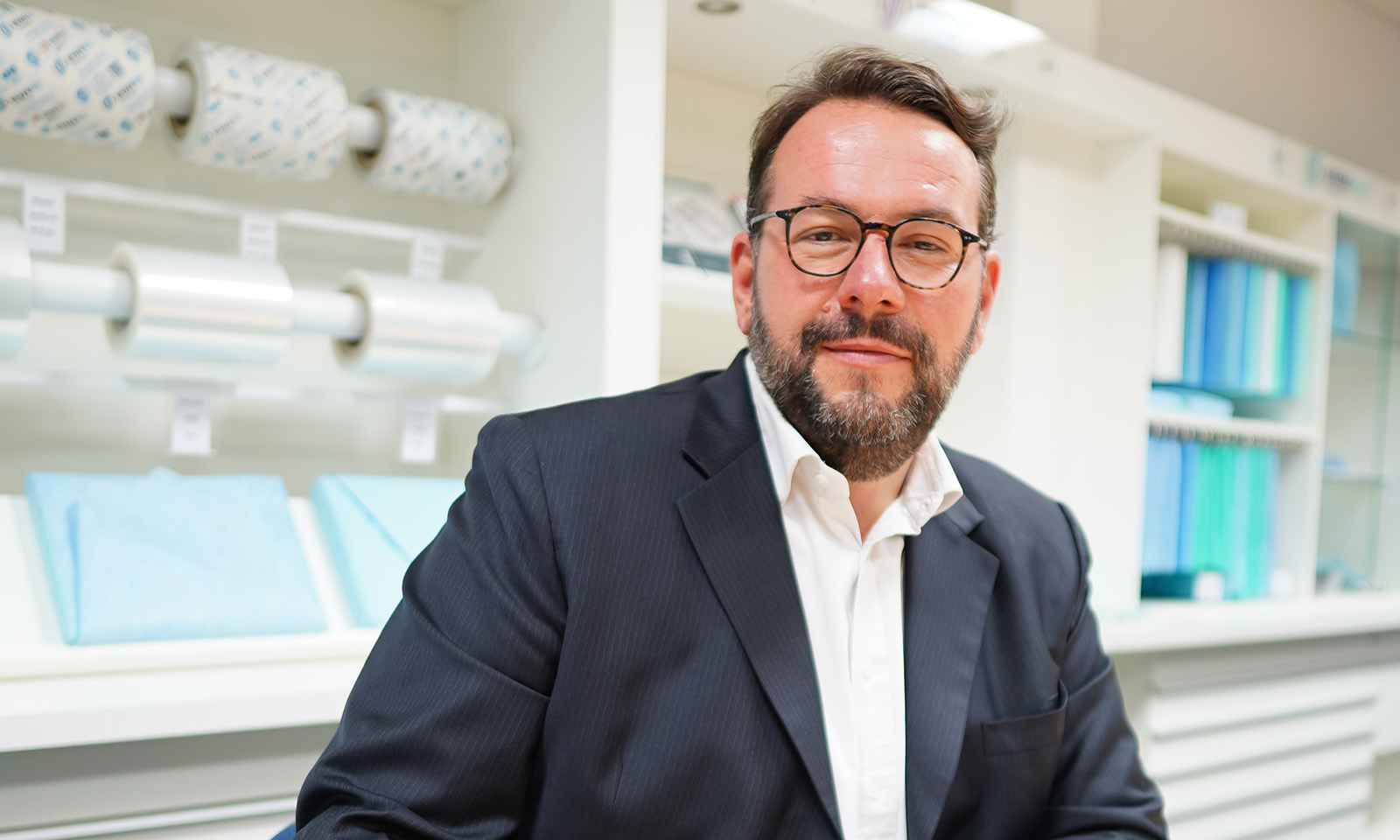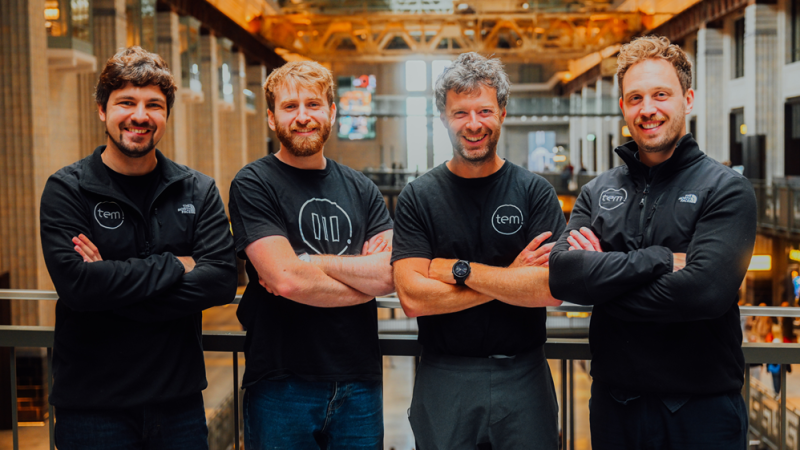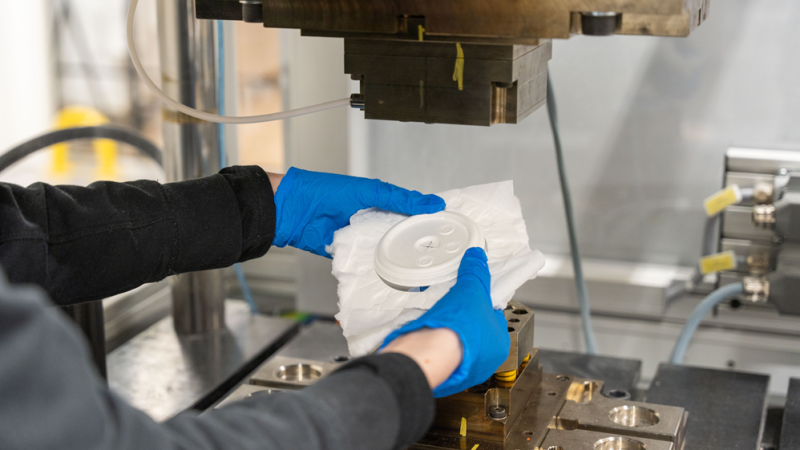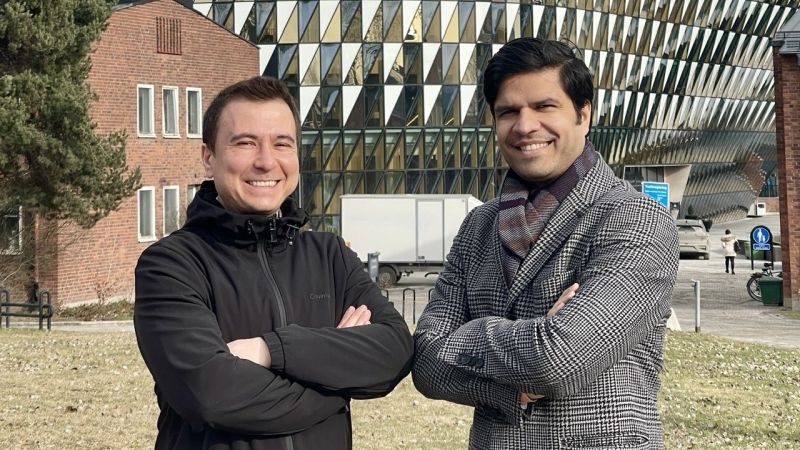Sterimed started life as the healthcare division of a paper manufacturing group, dedicated to providing paper packaging for sterile devices. Then, in 2016, the company underwent a restructuring and sold this business. As Managing Director of the division, it was the moment Thibaut Hyvernat had been waiting for, and Sterimed was born.
“We had discussed budding the business off already, a few years before we really started the Sterimed adventure,” he recalls. “We decided to create a new entity with a vision and strategy, and we prepared this over five years from 2011 to 2016. We established a new story and a new strategy for the business. We could do what we wanted to do, which was become an independent group. That was seven years ago.”
Today, Hyvernat is the President and CEO of that new company, enacting a vision that has been a long time coming. Even before day one, the company’s ambitions lay in the medical packaging arena.
“It is an attractive market in need of innovation and a new player, a global leading player able to serve the needs of healthcare facilities and large medical device and pharma companies,” Hyvernat informs us. “We had a strong foundation as the worldwide leader in paper for medical applications, and from this base, we decided to build a global medical packaging provider serving hospitals, medical device companies and pharma companies.”
Since then, Sterimed has come a long way through organic growth and dynamic innovation. Since 2019, the company has made two acquisitions a year, forming a business group that currently stands at 23 sites, including 12 manufacturing sites around the globe, all serving the medical device industry, hospitals, and pharma in sterilization packaging needs.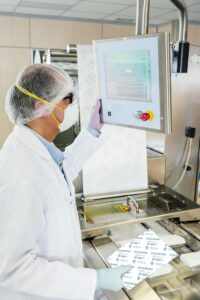
It is not an easy sector to do business with. The healthcare sector, understandably, has the highest possible standards, with quality assurance an absolute must.
Fortunately, Sterimed’s integrated structure means it is more than up to the challenge.
“We have built a vertically integrated business model, converting our own materials into medical packaging. We go up the distribution path, right up to the hospital,” Hyvernat says. “We sourced our own raw materials and take them through the production of our products, right up to the end user. We have mastered every single point of the supply chain and the value chain. We can guarantee our customers that we know exactly what materials we use when developing new packaging. We control the whole value chain, which is a unique business model in our industry.”
Sterimed’s customers and the healthcare industry are sensitive to risk management, innovation, and security, so that’s an important differentiation point.
Greener Healthcare Packaging
But while the standards of the healthcare, medical equipment and pharmaceutical industries are paramount, there are still areas the industry is looking to improve.
“The challenges that we are facing now are around the sustainability of our products,” Hyvernat tells us.
Packaging in the healthcare sector has been under less pressure than sectors such as the food and industrial sectors, but Hyvernat insists sustainability has always been something Sterimed has looked at closely from day one.
“It is in the DNA of the company,” Hyvernat says. “In the global packaging industry, including healthcare, those concerns will continue to be more and more important in the future, so we are focusing our innovations in this direction. We are notably working to minimise the use of plastics.”
Sterimed’s current mission is to develop new materials, new substrates, and new combinations of substrates. Where necessary the company will still use plastic, but wherever possible it uses far more sustainable paper.
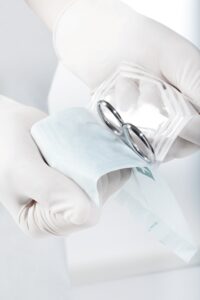 “It is not ready for every application, but we are working hard to make progress,” says Hyvernat.
“It is not ready for every application, but we are working hard to make progress,” says Hyvernat.
As with the other standards that Sterimed enforces, the company’s vertical structure is invaluable, particularly given the custom products their customers frequently need.
“We have a vertically integrated model and our own substrate manufacturing facilities. We have a very close relationship with our customers, and a lot of the packaging used by medical device companies is tailor-made,”
Hyvernat says. “We have relatively few standard products. Our customers innovate in what they do, so they need tailor-made, specific packaging.”
Everything Sterimed does is geared around understanding its customers’ needs, particularly when it comes to large medical device manufacturers.
“We are included as early as possible in their own innovation processes, developing and innovating ourselves while holding hands with customers as they innovate,” Hyvernat points out. “We offer a value proposition others cannot as a trusted partner for business development.”
This is particularly important as the healthcare sector is an industry often made up of very long-term relationships.
“We have customers who, once they validate packaging for a device or a drug, they will not change that for 20-25 years because the packaging itself is considered a medical device validated by healthcare authorities all around the world,” Hyvernat says. “We cannot make a mistake.”
An Association of Entrepreneurs
In pursuing these standards, Sterimed relies on a team of capable, motivated talent.
“I very often describe Sterimed as an association of entrepreneurs. The group of people who started this venture ten years ago were all shareholders, and we want to add entrepreneurs to that team,” Hyvernat explains. “These are new shareholders, new additions to the team through recruitment and also including the entrepreneurs who join us from leading companies we acquire.
The management teams of those companies stay on and become shareholders and continue to lead and manage the company that joins the group. That’s a key element.”
Today the company employs 1400 people, half are shareholders in the company. But Hyvernat wants them to be more than shareholders, he wants them to be an active part of the team.
“We want a culture of trust, responsibility, and familiarity,” he says. “Every employee knows why they are here, what their mission is and has a wide degree of freedom in how to realise that.”
Looking forward, Sterimed has big plans for developing its core business in the medical packaging industry.
“We might make more acquisitions, but we want to concentrate on companies who share our values and vision of what we can do,” Hyvernat says. “We are expanding our range of products and services, whether they are medical device companies or hospitals. We are also starting to look into new areas to enter over the next five to ten years.”
Whatever the company’s next steps, they will be driven by the entrepreneurial spirit of Sterimed’s team.
“It’s all about the human adventure,” Hyvernat insists.
